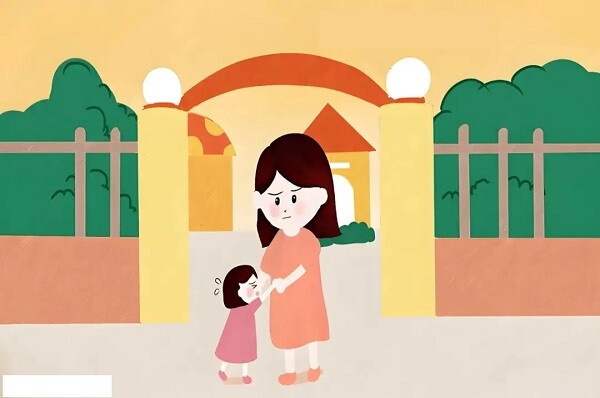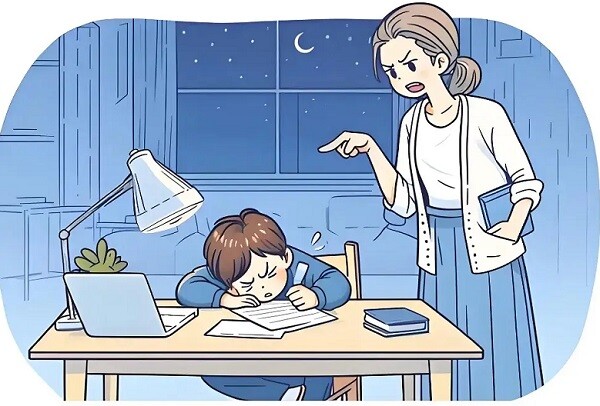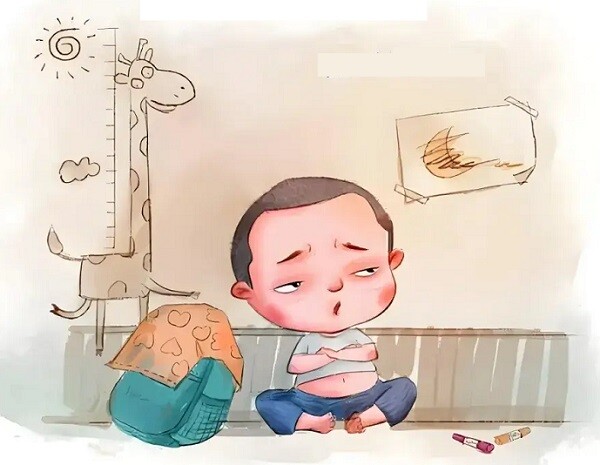Some children get so anxious about exams that they lose sleep, while others may feel stressed about their relationships with their classmates.
So, how can parents help reduce their children’s academic anxiety? An educational expert suggests four ways parents can support their children through these challenges.


Decoding Your Child’s Anxiety
A child’s inner world is like an open book, and parents need to read it carefully to understand what’s going on in their lives. Every emotion and thought has a meaning, and it’s important to pay attention to these cues.
If your child seems anxious about school, it could indicate that they’re facing academic pressure. This anxiety might manifest in various ways, such as fear of failing exams, worry about teacher’s criticism, or peer ridicule.
Some children may even experience physical discomfort, such as headaches, stomachaches, or insomnia, without any apparent reason. Psychologists suggest that these physical reactions are often outward signs of internal anxiety. When children can’t express their emotions verbally, their bodies react naturally, and these symptoms can become their way of showing fear or worry.

Learn to decode your child’s anxiety.
Therefore, parents should communicate gently and friendly, creating a safe space for their children to express their true thoughts. An effective approach is to initiate conversations with open-ended questions like, “I’ve noticed you seem a bit down lately. Is there anything you’re worried about that you’d like to share with me?” This shows concern and encourages sharing without putting pressure on the child.
When children feel comfortable opening up, they will be more at ease discussing their worries. Instead of rushing to offer advice or solutions, listen attentively and show that you understand and empathize.
Educational research from MIT suggests that allowing children to talk about their worries can reduce negative emotions by up to 50%. When children have the opportunity to express their thoughts, they feel relieved and more capable of finding solutions to their problems.

Creating a Safe Psychological Harbor
Every child longs for a warm and safe haven as they grow up. When they feel anxious about academic pressure, a parent’s attitude and actions are crucial.
Psychologist John Bowlby once said, “When children are vulnerable, a parent’s understanding and support is their greatest source of healing.” This highlights the importance of family in providing a secure and supportive environment for children.
When children face academic pressure, creating a reasonable study plan together can effectively reduce anxiety. Parents can help break down large goals into smaller, more achievable ones.

Refrain from scolding your child.
For example, instead of just setting a goal to “excel in math,” parents can help their children set specific goals like “learn one new lesson per week” or “do homework for 30 minutes every day.” These concrete goals make time management easier and give a sense of accomplishment with each step.
Additionally, offering timely affirmations when your child completes their homework is a great way to encourage them. Simple praises like, “I’m so proud of you” or “You did a great job!” will make them feel recognized and motivated.
A mother shared that she secretly puts a note in her child’s bag that says, “I will always support you.” This small gesture makes the child feel loved and secure. These little details create a sense of closeness and warmth, letting the child know they are not alone in their academic journey.

Developing Proactive Coping Strategies
In the face of pressure and challenges, children need to learn to react positively. They can be taught simple stress-reduction techniques like deep breathing, listening to music, or drawing.
What’s more important is fostering a positive attitude towards success and failure. Research has shown that children who exercise regularly have significantly lower levels of anxiety than those who don’t.
A psychological counselor suggests that when children face failure, instead of denying their emotions, guide them to find solutions. For example, if your child doesn’t do well on a test, you can analyze the reasons together and come up with an improvement plan. Through this process, they will gradually build self-confidence to face difficulties.

Develop proactive coping strategies.

Creating a Relaxed and Enjoyable Learning Environment
Learning should be a joyful experience. Parents need to help children find the joy in learning instead of making it a burden.
Learning can be made fun through experiential activities that bring knowledge to life. For example, use storytelling to teach history…
Finnish education expert Hegren says, “A fun learning environment can stimulate children’s curiosity and creativity.”
At home, parents can set up a comfortable study corner with some greenery and their child’s favorite items, creating a warm and engaging study atmosphere.
Create a warm and loving learning environment for your child to grow up in a relaxed and happy space.
Addressing children’s academic anxiety is a gradual process that requires parents’ patience and wisdom. By approaching their children’s worries with understanding and support, parents can help them build the confidence and courage to face their academic challenges. Remember, each child is unique, so accompany them with your whole heart and wait for the flowers to bloom.









































